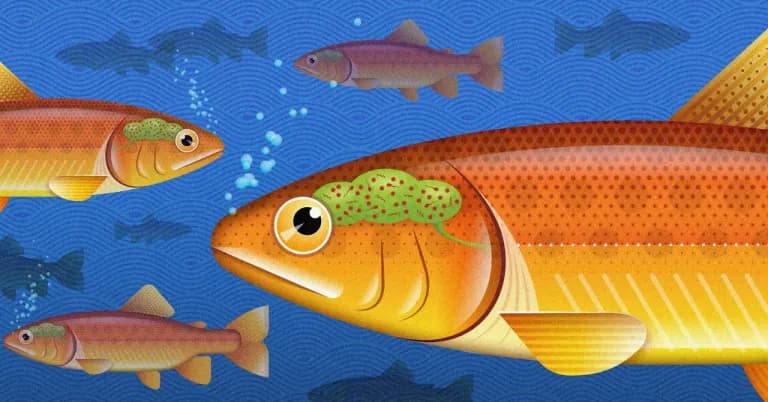Summary
Scientists have discovered the strongest evidence yet that healthy vertebrates can have brain microbiomes. Researchers at the University of New Mexico discovered communities of bacteria thriving in salmon and trout brains.
Irene Salinas, who studies fish immune systems at the University of New Mexico, probed the fish brain for microbes. Now she's looking for them in mice brains, too.
After years of curiosity, a scientist decided to confront her suspicion in her favorite model organisms: fish. The project took five years, but even in the early days it was clear that the fish brains weren’t barren.
Researchers have long been skeptical that the brain could have a microbiome. All vertebrates, including fish, have a blood-brain barrier. Salinas hypothesized that these species may have colonized the fish brains early in their development.
Biologists recently probed the brains of healthy salmonids, including rainbow trout and Alaskan Chinook salmon, and discovered they were home to living microbes.
In 2013, scientists studying the neurological impacts of HIV/AIDS found genetic hints of bacteria in the brains of both sick and healthy people. The findings were the first to suggest that maybe humans could have a brain microbiome in the absence of disease.
If microbes have adapted to cross the fish blood-brain barrier and survive in the fish brain, they could do the same in our bodies. If they are truly present, this would suggest an extra layer of neurological regulation that we didn’t know existed. It’s unlikely they would be present at the same levels as they are in fish, Link said, “but that doesn’ts mean there’d be none”
